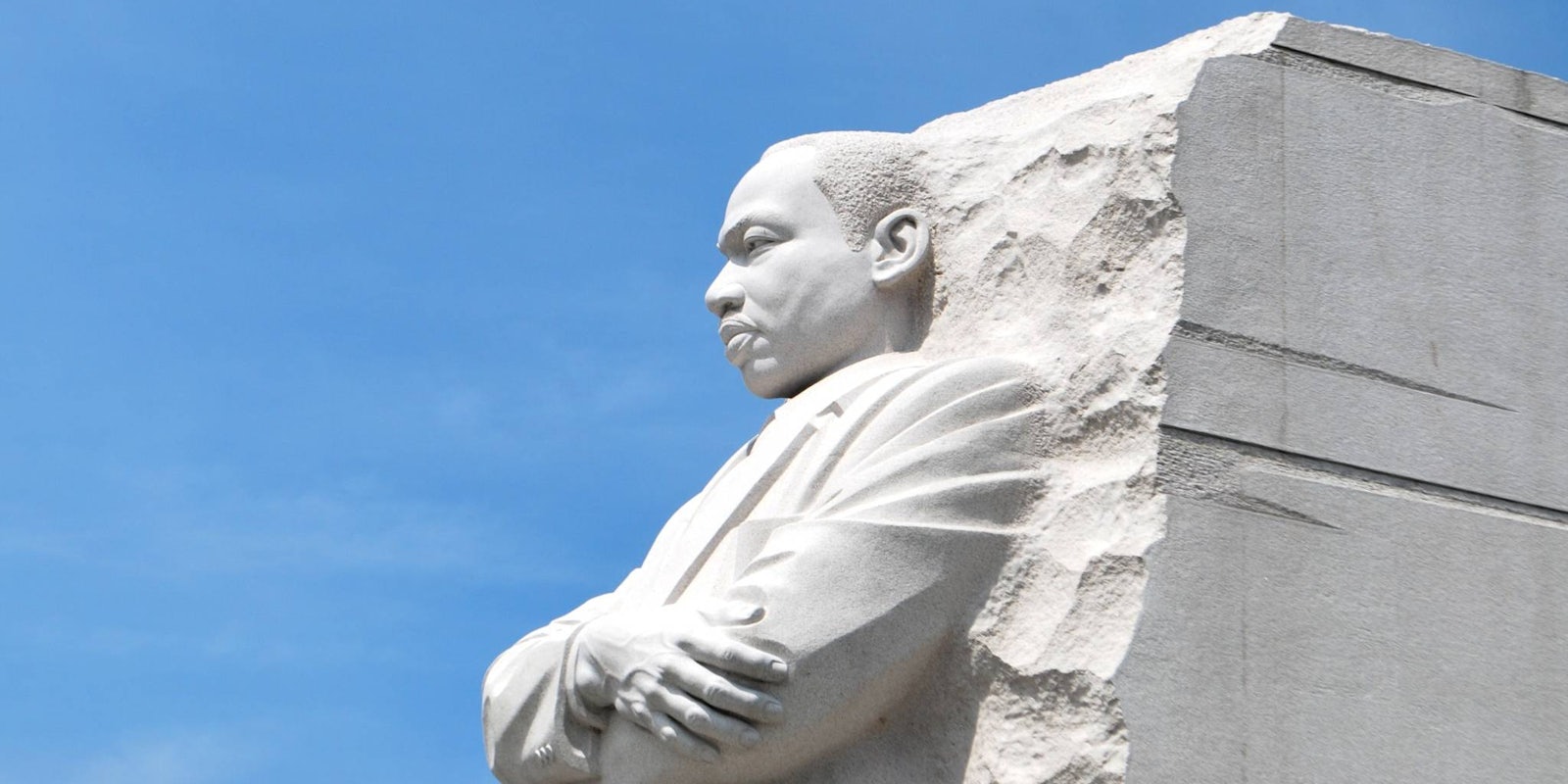On Jan. 21, there will be a massive protest in Washington, D.C. in support of equal human rights. The protest will come on the heels of Martin Luther King Jr. Day, and no doubt most of the protesters will have been inspired and influenced by Dr. King’s work and legacy.
However, the public image of Dr. King has been watered down over the years. Despite the fact that he was assassinated for his beliefs and targeted by the FBI, he is often considered as peaceful and agreeable, someone white people at the time could respect. While he was those things sometimes, that’s not the full picture, and reducing him to such dishonors his memory.
For example, it’s a common trope that when black Americans protest and fight for their rights, some white pundit will shame their behavior, saying Dr. King would be disappointed. “The narrative of the Martin Luther King Jr. holiday (along with the oversimplified, whitewashed chapters of civil rights history only opened in schools during this week and the month of February) work to distract and weaken black Americans while strengthening white supremacy,” wrote Ijeoma Olua for the Establishment.
Which is why it’s important to remember in many of his speeches and writings, Dr. King clearly blamed white America for black oppression and defended black people who used violence to be heard.
“I contend that the cry of ‘Black Power’ is, at bottom, a reaction to the reluctance of white power to make the kind of changes necessary to make justice a reality for the Negro,” he said in an interview in 1966. “I think that we’ve got to see that a riot is the language of the unheard. And, what is it that America has failed to hear? It has failed to hear that the economic plight of the Negro poor has worsened over the last few years.”
He put the responsibility on white people to educate themselves, and recognize that racism is a white problem. “Whites, it must frankly be said, are not putting in a similar mass effort to reeducate themselves out of their racial ignorance,” he wrote in 1967.
He also stressed the link between identity politics and economics. “Again, we have deluded ourselves into believing the myth that capitalism grew and prospered out of the Protestant ethic of hard work and sacrifice. The fact is that capitalism was built on the exploitation and suffering of black slaves and continues to thrive on the exploitation of the poor—both black and white, both here and abroad,” he wrote in The Three Evils of Society.
America is facing an administration whose proposed policies and campaign promises would hurt millions of Americans. It would hurt them through lack of healthcare, through discriminatory laws, and through disregard for the environment. And the incoming administration has repeatedly shown that they do not respect the norms or traditions of political discourse. That cannot be fought by continuing to adhere to those same civil traditions. It must be actually fought.
Dr. King did not politely ask for civil rights. He yelled, he disagreed, and he called out. If you want inspiration for how to move forward, remember that side of him.


